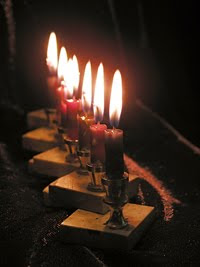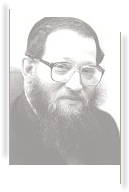 “There was once a clever fox who was cornered by a hungry lion. Just as he was about to be eaten, the fox said to his attacker, “Why do you want to eat me, a small fox who is only skin and bones? I will show you a good, fat man who is sure to fill your belly much better.” After considering this proposal for a moment the lion agreed, and the two set out together in the direction of the village. Soon, they reached the edge of a clearing where a man was sitting on the far side of a pit covered with leaves.
“There was once a clever fox who was cornered by a hungry lion. Just as he was about to be eaten, the fox said to his attacker, “Why do you want to eat me, a small fox who is only skin and bones? I will show you a good, fat man who is sure to fill your belly much better.” After considering this proposal for a moment the lion agreed, and the two set out together in the direction of the village. Soon, they reached the edge of a clearing where a man was sitting on the far side of a pit covered with leaves. However, when the lion saw the man he said to the fox, “I am afraid that his prayers will serve to protect him and do me harm.”
Once again, the lion followed the fox’s advice and ran towards the man to pounce on him. Suddenly, when the taste of supper was already sweet in his mouth, the ground gave way underneath him and he plunged downward into the deep trap. As the fox peered at him safely from the edge of the pit the lion looked up and cried, “You gave me your word that no bad would befall me! How could this have happened?”
“Simple,” replied the fox. “It seems that your grandfather must have been faced with a similar confrontation!”
“But is it fair that I should have to suffer for the sins of my grandfather?” bemoaned the lion.
“Ahhh,” replied the fox. “But why did you not think of that when it was your grandchildren whose future was at stake?”
R’ Dessler, in a letter written during his journey to America in 1930, expressed the thought that with the aid of the above parable he was able to understand the answer to a question which had always puzzled him concerning the rebellion of Korach and his associates. Our sages tell us that indeed, Korach was one of the greatest personages in the generation of the giving of the Torah. What’s more, Korach wasn’t alone. He was joined in his crusade against Aharon and Moshe by one-hundred and fifty heads of the Sanhedrin who stood loyally by his side. How is it possible that such great individuals were able to commit such a gross error?
The answer is that just as the lion, the king of the beasts, was blinded by his hunger pains and was thus capable of being deceived, so too, when a person, even a very great person such as Korach who espoused high spiritual aspirations, allows himself to be slanted by his hidden personal motivations it is possible for him to ignore the most obvious facts of reality.
Our sages tell us that Korach’s honor was slighted when his younger cousin was appointed to a coveted position of authority. Only because of this was it possible for him and his assembly who witnessed the miracles of the ten plagues, the exodus from Egypt, and the many wonders that the Jewish people experienced in the desert to question the leadership of Moshe and the appointment of Aharon as the Kohein Gadol.
For us, the message of Korach’s rebellion against Moshe and Aharon and his subsequent downfall serves as a powerful reminder of the power of personal considerations and peer pressure to shape our decisions even against what we know in our hearts is clearly is the correct path in life.
(Adapted from Mictav M’Eliyahu Vol. 4, p.304)
Thank you Rivka for sending this to me.









.jpg)



















No comments:
Post a Comment